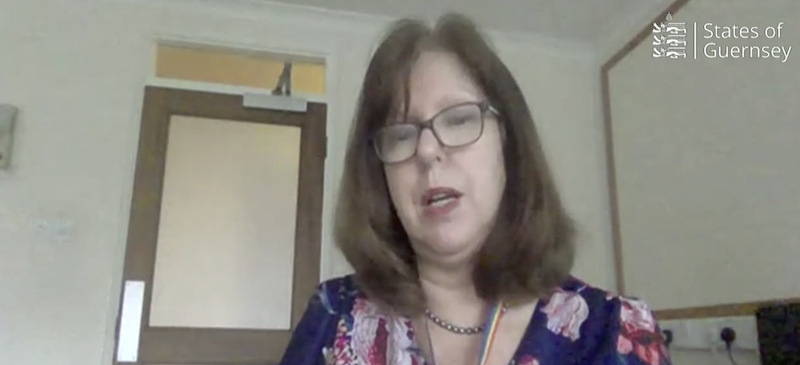

More data is being collected on post-covid syndrome, which often starts to present itself 12 weeks after an acute covid infection.
Public Health is looking to combine local surveys with guidance from the National Institute for Health and Care Excellence, in order to better understand the syndrome, which is also known as long covid.
“It’s difficult to clinically manage because the clinical presentation can vary," said Director of Public Health, Dr Nicola Brink, of the cases seen so far.

Pictured: Dr Brink has discussed the idea of sending out surveys to people who have had the virus to better understand how it has affected their longer term health.
“Developing a system to manage people and provide the appropriate care for such individuals is really important."
Health and Social Care’s Medical Director said a lot of work is going on to develop support for sufferers of any long covid symptoms.
“We’re discovering that there is more we can offer people after covid illness,” said Dr Peter Rabey. “There may be a really strong case that early intervention in long covid might prevent longer term damage.”
He urged people who think they are experiencing lingering symptoms to get in contact with their Doctor.

Pictured: There are a number of long covid symptoms, including; pins and needles, fatigue, insomnia, dizziness and joint pain.
The World Health Organisation said understanding the long-term consequences of covid should be made a priority by health authorities.
Dr Brink said efforts are being made in the island to collect data on the residual effects of the illness.
“We are going to be sending a questionnaire out, probably in June,” she said. “This will give us that three month period to try and work out what the residual impact on the health and wellbeing of islanders are.”
Pictured top: Health and Social Care’s Medical Director Dr Peter Rabey.
Comments
Comments on this story express the views of the commentator only, not Bailiwick Publishing. We are unable to guarantee the accuracy of any of those comments.